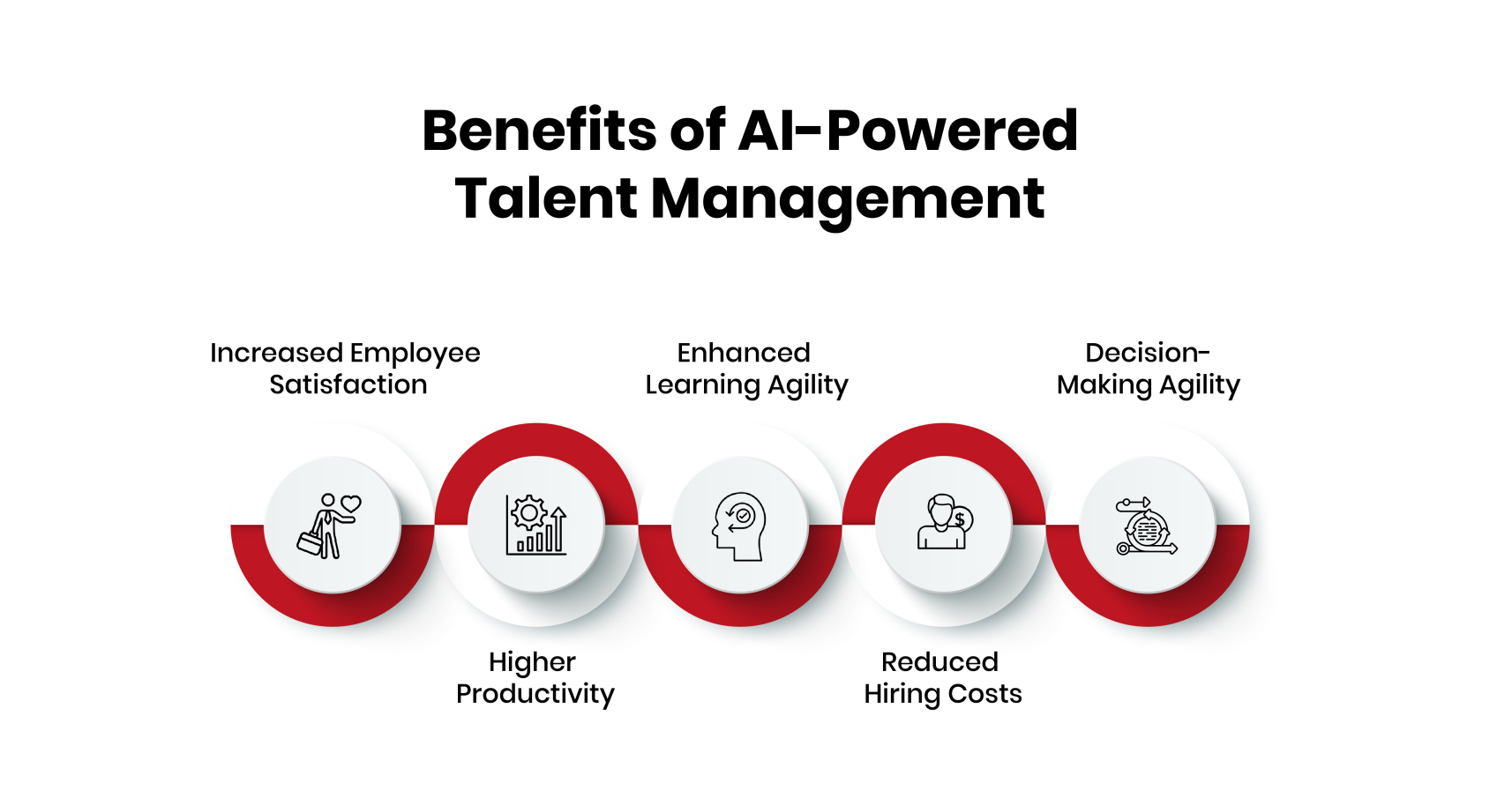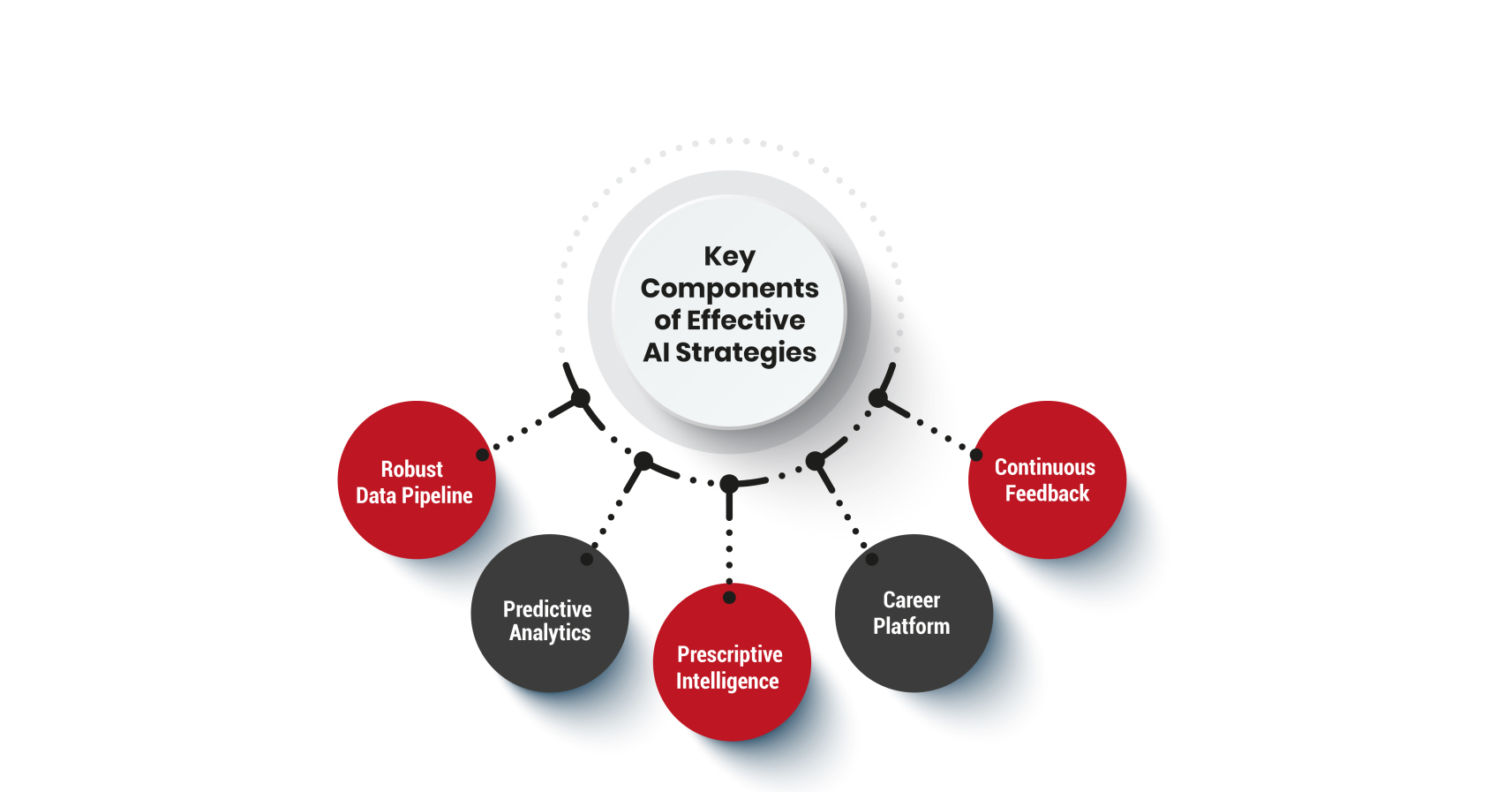The influx of artificial intelligence (AI) is transforming workplaces, and talent management is no exception. Powered by data and machine learning algorithms, AI-based retention strategies are shaping the future of career development in groundbreaking ways. This technology allows organizations to understand employees and create personalized pathways aligned with skills, aspirations, and evolving industry demands.
As AI redefines job landscapes, it also empowers employees by removing restrictive hierarchies and enabling self-directed career journeys. At leading companies, these AI systems are already being leveraged to boost employee satisfaction, productivity, and longevity. The data-backed insights they provide help match talent to opportunities, facilitate continuous reskilling, and foster work environments where both individuals and businesses can thrive.
Before exploring AI-based talent management solutions, it is important to understand the pressing challenges retention strategies aim to solve. Over recent years, employee turnover rates have increased significantly across industries. Gartner predicts that employee turnover rates will be 50–75% higher than historical levels, and companies are experiencing an 18% longer time to fill vacant roles compared to before the pandemic.
The monetary impact of replacing employees can be staggering, with SHRM estimating turnover costs at 6–9 months of an existing employee’s salary on average. But even more detrimental is the loss of organizational knowledge and relational capital that occurs when team members leave. Recruiting new hires also consumes immense time and resources from hiring managers and HR teams.
As employee expectations around flexibility, purpose-alignment, and career development continue rising, traditional talent management tactics are proving insufficient. Legacy approaches fail to provide managers with actionable insights to identify and address attrition risks proactively. In contrast, AI-powered strategies leverage predictive analytics to enable early interventions tailored to individual needs and trajectories.
At its core, AI-based talent management is about utilizing technology to deeply understand a multigenerational workforce and respond with personalized engagement mechanisms. Machine learning algorithms can process volumes of data encompassing skills profiles, project histories, training logs, manager ratings, peer feedback, and survey responses.
By analyzing such variables spanning performance, competencies, sentiment, and job satisfaction, AI models identify employees most at risk of leaving. The insights produced then enable HR to undertake timely initiatives—from aligned skill-development programs to improved work-life balance policies—to enhance employee experiences preemptively.
Continuous feedback loops also allow these algorithms to keep improving their predictive and prescriptive capabilities. As more real-time data gets aggregated around how employees respond to various engagement interventions, retention strategies become progressively sharper.
For employees, AI in HR is ushering in a reimagination of career paths themselves. Instead of static tracks defined by an organization’s existing hierarchy, AI enables truly personalized journeys aligned with individual passions, talents, and evolving aspirations.
By matching employee competencies and interests with the company’s real-time talent needs and emerging roles, AI identifies new possibilities for advancement and cross-functional exposures. This empowers people to explore multidimensional career trajectories rather than just chasing the next promotion.
At Spotify, for example, the user-centric Echo platform provides AI-recommended internal job rotations to expand employee skill sets. The company has found improved retention and engagement outcomes from enabling such self-directed career exploration.
Implementing AI to boost employee retention and enable dynamic career growth brings manifold benefits, both directly for individuals as well as for overall enterprise growth: 
By leveraging AI, organizations can boost employee lifetime value while empowering individuals with technology-enabled career ownership. This symbiotic approach allows both businesses and their people to flourish in the age of AI.
Now that the benefits of personalized, AI-enabled career experiences are clear, what are the nuts and bolts of implementing such a forward-looking talent management infrastructure? The key lies in integrating AI throughout the employee lifecycle: 
The foundation is curating a rich longitudinal dataset capturing employees’ skills, projects, credentials, affiliations, psychometrics survey responses, etc. Standardizing this information from fragmented systems while ensuring proper consent and governance protocols is vital.
Retention risk modeling using techniques like survival analysis on the talent dataset allows spotting vulnerable employee groups showing a probability of exit within a specified timeframe.
Once at-risk segments are visible, AI can additionally recommend relevant interventions personalized to an employee’s engagement drivers based on historical data patterns.
An intelligent platform allows both employees and managers to visualize possible career steps aligned with personal aptitudes while enabling development nudges like microlearning.
Multivariate testing allows for comparing the impact of interventions. Metrics spanning voluntary attrition ratios, employee NPS, learning hours logged, and career progression rates allow optimizing engagement initiatives.
Ongoing enhancements across the funnel ensure retention processes grow continuously more robust, leveraging the virtuous cycle of data.
Here are some detailed case studies highlighting how leading companies are leveraging AI-powered solutions to transform employee retention and career development:
These examples highlight how leading companies across sectors are utilizing AI’s predictive power to understand customers, serve them better, and maximize lifetime value - ultimately improving retention in a competitive world.
Through predictive modeling, right-skilling programs, and career visualization, AI-based employee retention and mobility solutions are demonstrating tangible human capital ROI. This new paradigm pioneered by platforms heralds data-driven, personalized talent development as a competitive differentiator for leading global organizations across sectors.
As enterprises cope with growing skills scarcity, demographic shifts, and accelerated disruption cycles, an agile talent strategy is imperative for organizational resilience. AI-powered workforce solutions provide the analytical backbone for this adaptivity through continuous visibility into human capital risks and responses.
For employees as well, embracing AI’s enablement allows pivoting skills in lockstep with market evolutions. Technology is no longer a threat to replace jobs but an opportunity to drive more fulfilling careers aligned with personal strengths by removing restrictive norms.
In these times of flux, the symbiotic use of AI - balancing employee voice with data-driven insights - is charting the path forward for both businesses and their workforce, thriving in concert. The future of work is not about man versus machine but about the immense possibilities of this collaborative synergy. Those organizations that recognize this driver early will be primed for the next transformation horizon powered by aligned human and artificial intelligence.
This website uses cookies to enhance website functionalities and improve your online experience. By browsing this website, you agree to the use of cookies as outlined in our privacy policy .